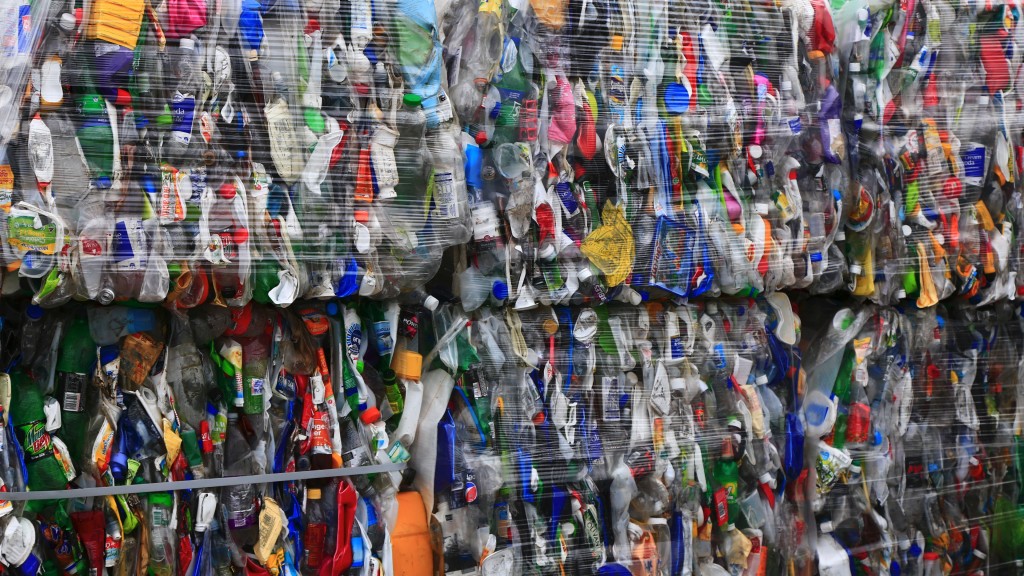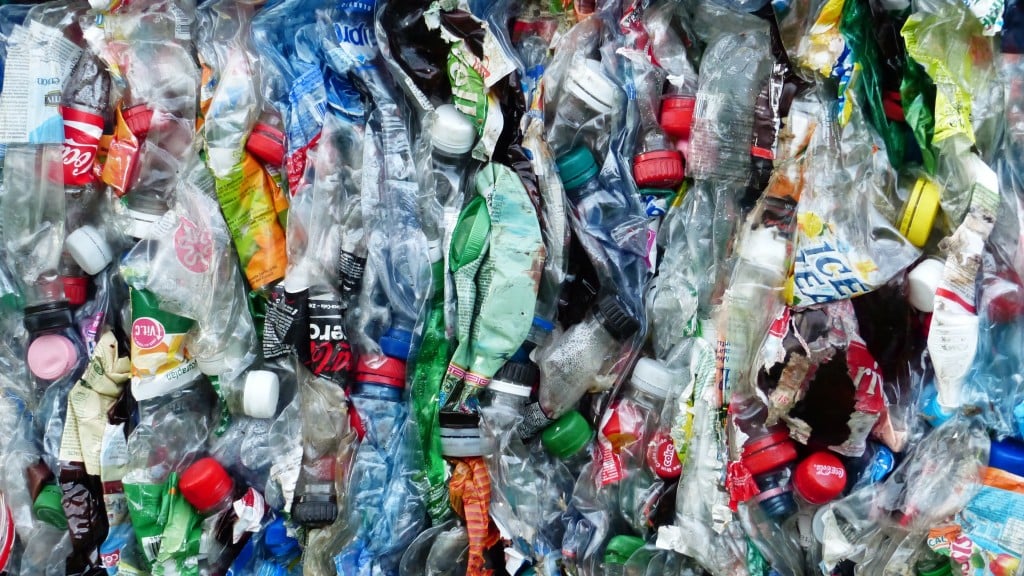
The ISRI Board of Directors is considering changes to the Guidelines for Recycled Plastic that were approved by the ISRI Plastics Division on September 20, 2023. The deliberations will take place at ISRI's upcoming fall board meeting in Denver, Colorado on October 18, 2023.
Proposed specifications
Specifications: PP Small Rigid Plastic
Any polypropylene (PP) containers, packaging or products with the ASTM D7611 "#5, PP" resin identification code generated through a positive sort from curbside, drop-off, or other public or private recycling collection program. Bottles, tubs, cups, and other containers and packaging as well as non-container/packaging or products are accepted.
Product: polypropylene containers, packaging, and products.
Source: Post-consumer material collected primarily from residential sources, may also include some material that has met its intended use from commercial establishments.
Check with your buyer(s) as to their allowances for:
- Bulky PP items greater than 3 gallons equivalent size, (e.g., buckets, crates, waste bins, laundry baskets, large toys, and large storage bins). These items are accepted in the mixed rigid bulky bale.
Contamination: Total contamination should not exceed 15 percent by weight.
Allowable contaminates at low levels: These contaminants are tolerable at low levels. The following contaminants should not exceed 2 percent by weight of any of the following "individual" contaminants unless noted otherwise.
- High-density polyethylene (#2) or low-density polyethylene (#4) rigid plastic (10 percent)
- PET (#1), PS (#6) rigid plastic (three percent maximum of all combined
- Any other non-PP rigid plastic, including Other (#7) and compostable plastic (e.g., PLA and PHA) (one percent)
- Liquid or other residues
- Loose paper or cardboard (OCC)
- Aluminum cans
Contaminants not allowed: If present, these contaminants may result in rejection.
- PVC (#3) in any form
- Any item with degradable additives
- Containers which held hazardous materials, such as flammable, corrosive or reactive products, and pesticides or herbicides
- Any plastic bags or film
- Non-PP plastic foam
- Other metal, wood, glass
- Batteries
- Electronics scrap, including items with circuit boards or battery packs
- Bio-Medical waste/items (e.g., syringes, sharps, gloves, masks)
- Rocks, stones, mud, oils, grease
Specifications: mixed bulky rigid plastic
Any large rigid polypropylene (PP) high-density polyethylene (PE) and/or low-density polyethylene (LDPE) plastic items that may have the ASTM D7611 resin identification codes #5 PP, #2 HDPE, and/or #4 LDPE generated through a positive sort from curbside, drop-off, or other public or private recycling collection program. Examples include buckets, crates, waste bins, laundry baskets, large toys, large storage bins, and lawn furniture or other large PP/HDPE items. Buckets/pails with metal handles are accepted. Small injection moulded HDPE containers may be included. PP small items can also be included but are encouraged to be put in a PP Small Rigid bale.
Product: Bulky rigid plastic.
Source: Post-consumer material collected primarily from residential sources, may also include some material that has met its intended use from commercial establishments.
Check with your buyer(s) as to their allowances for:
- Regarding the inclusion of plastic items with metal such as axels and bolts and toys with electronic components and screws
Contamination: Total contamination should not exceed 15 percent by weight.
Allowable contaminants at low levels: These contaminants are tolerable at low levels. The following contaminants should not exceed two percent by weight of any of the following "individual" contaminants unless noted otherwise.
- HDPE bottles, canisters, or other blow moulded containers.
- Any other non-PP or Non-HDPE rigid plastic (large or small) including PET (#1), PS (#6), Other (#7) and compostable plastic (e.g., PLA and PHA) (four percent maximum of all combined)
- Liquid or other residues
- Loose paper or cardboard (OCC)
- Any plastic bags or film
- Metal, wood, glass
Contaminants not allowed: If present, these contaminants may result in rejection.
- PVC (#3) in any form, including vinyl siding and white PVC pipe
- Coolers of any type
- Baby/child car seats
- Drums (e.g., 55gl HMW drum)
- Polycarbonate (PC) rigid plastic, including bottles
- Acrylonitrile butadiene styrene (ABS) rigid plastic, e.g. (computer housing)
- Any item with degradable additives
- Containers which held hazardous materials, such as flammable, corrosive or reactive products, and pesticides or herbicides
- Any plastic foam, particularly EPS (expanded polystyrene)
- Batteries
- Electronics scrap, including items with circuit boards or battery packs (e.g., toys, computer products)
- Bio-Medical waste/items (e.g., syringes, sharps, gloves, masks)
- Rocks, stones, mud, oils, grease
Specifications: Mixed Small Rigid Plastic
Small rigid plastic items that are a mix of resins and generated in a positive sort from a curbside, drop-off, or other public or private recycling programs. Primary PP, PET, and HDPE with some other resins. Items include bottles, non-bottle containers, other packaging, and non-containers/packaging or products. PET and HDPE bottles are present to varying levels and are typically presorted out with some remaining. Items containing metal or electronics should be removed when possible.
Product: small bottle, containers, packaging, and products
Source: Post-consumer material collected primarily from residential sources, may also include some material that has met its intended use from commercial establishments.
Check with your buyer(s) as to their allowances for:
- Bulky rigid plastic items greater than three gallons equivalent size, (e.g., buckets, crates, waste bins, laundry baskets, large toys, large storage bins and lawn furniture). These items are accepted in the mixed rigid bulky bale.
Contamination: Total contamination should not exceed 15 percent by weight.
Allowable contaminants at low levels: These contaminants are tolerable at low levels. The following contaminants should not exceed 5 percent by weight of any of the following "individual" contaminants unless noted otherwise.
- PS up to (10 percent)
- Rigid plastic of any other resin, not mentioned elsewhere in the specification
- Aluminum cans
- Liquid or other residues
- Loose paper or cardboard (OCC)
Contaminants not allowed: If present, these contaminants may result in rejection. The following contaminants are not allowed at any level (zero percent allowed):
- Any PVC (#3) in any form
- Products with degradable additives
- Containers which held hazardous materials, such as flammable, corrosive or reactive products, and pesticides or herbicides
- Any plastic bags or film
- Any plastic foam
- Other metal, wood, glass
- Batteries
- Electronics scrap, including items with circuit boards or battery packs
- Bio-Medical waste/items (e.g., syringes, sharps, gloves, masks)
- Rocks, stones, mud, oils, grease
ISRI's Board of Directors may choose to adopt, amend, or reject the recommendations of the plastics division or table them pending further review.
ISRI wants those with comments, recommendations, or questions to contact ISRI Chief Economist Joe Pickard ([email protected]) or ISRI Senior Economist Bret Biggers ([email protected]). If adopted or amended, there will be an open comment period for 30 days following the vote by the board.
These three proposed revisions combine nine expected specifications to reflect current trading in the marketplace. The Association of Plastic Recyclers (APR) contributed its expertise in the development of these revisions.



